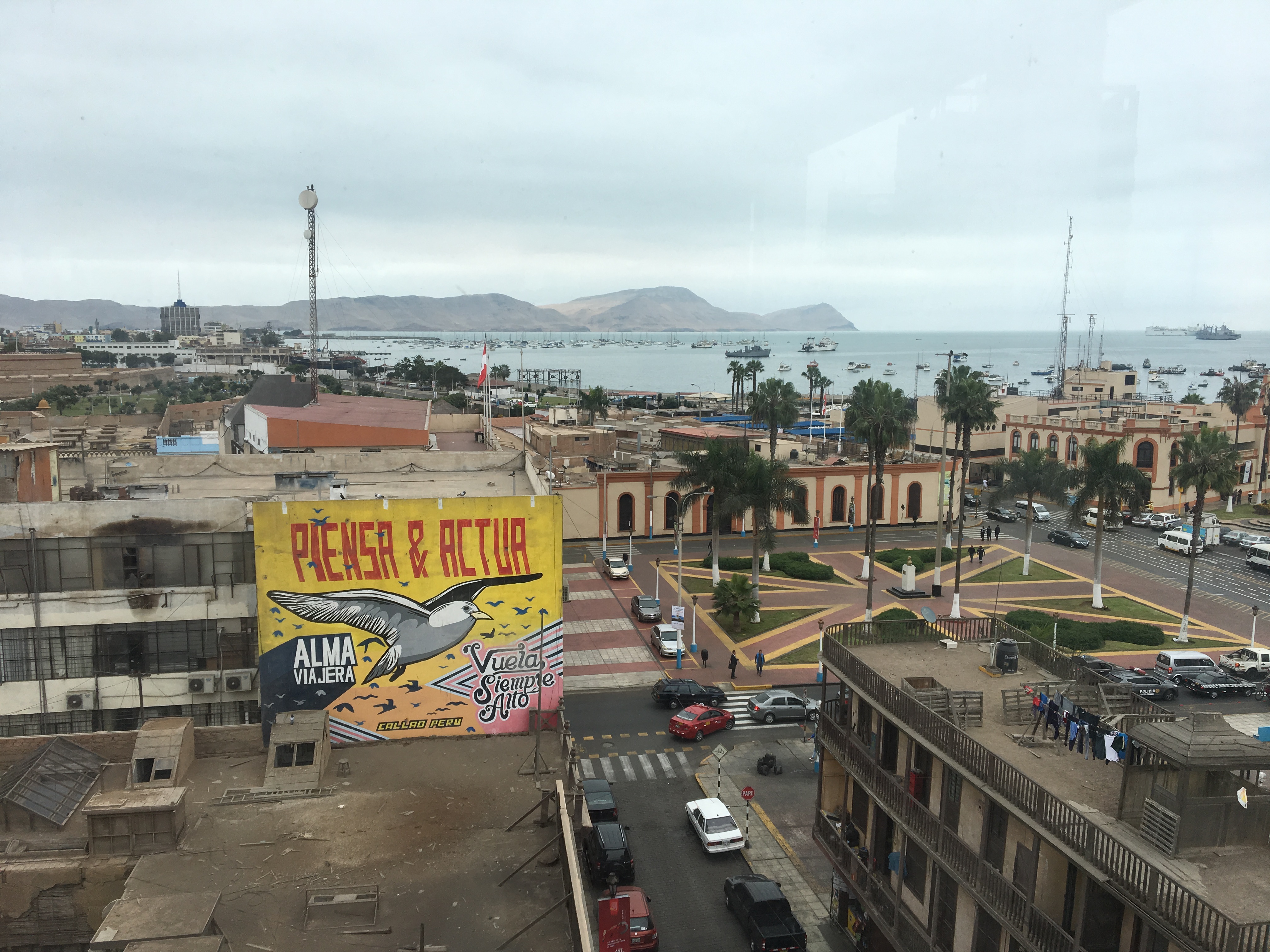Dr Paul Merchant, Lecturer in Latin American Film and Visual Culture, writes about his new AHRC Leadership fellowship.
Coastal communities around the world are facing significant challenges, both ecological (such as rising sea temperatures) and as a consequence of human activity (for instance through flows of migration). Chile and Peru have been identified as two of the countries likely to be most affected by climate change, with their fishing industries vulnerable to rising sea temperatures, and their coastal regions vulnerable to the El Niño phenomenon, which is intensified by climate change. This project asks how visual and audiovisual creative responses to these and other issues from Chile and Peru can help us to live well in changing coastal environments across the world.
Scholars working in the environmental humanities and the emerging field of oceanic studies have argued that in order to develop a more sustainable relationship to the world’s oceans, we must understand the history and present of our responses to them. This project fills an important gap in this field of enquiry, which has to date paid little attention to the Pacific coast of South America and has remained focused on European and North American contexts. The project’s exploration of creative responses to ports as places of transnational encounter and exchange moreover responds to global concerns over how to adapt to increasing flows of migration. Coasts have long been viewed as spaces of exhibition and performance, where social change is particularly apparent, and while the Pacific Northwest of the United States of America has long been recognised as a hive of counter-culture and creativity, the diverse political traditions and cultures of Pacific ports such as Valparaíso and Callao have received far less attention.

Beginning in 1960, the date of a major earthquake and tsunami on the Chilean coast, this project asks how visual and audiovisual responses to the Pacific Ocean from Chile and Peru can shape a new critical understanding of how coastal communities respond to social and environmental pressures. The project analyses the production, reception and circulation of feature films (Patricio Guzmán, Javier Fuentes-León), video art (Cecilia Vicuña) and installations (Claudia Müller, Ana Teresa Barboza), among other forms of cultural production. It asks what changes are visible across the time period studied (1960 to the present), and shows how coastal cultural production brings to the surface lesser-known local, national and transnational histories.
How can scholars of audiovisual media produce critical work that supports public engagement with ecological issues?
The project also asks a methodological question: how can scholars of audiovisual media produce critical work that supports public engagement with ecological issues? This question is particularly important given the vital role that audiovisual media have played in recent years, whether in the form of television series or online video clips, in furthering public understanding of contemporary ecological challenges. One need only think of the influence of the BBC’s Blue Planet II series on debates around plastic use in the UK.
The project’s findings will be disseminated through several major scholarly publications, including a monograph with a leading university press and a methodological article in a leading peer-reviewed environmental humanities journal. A Post-Doctoral Research Assistant will be recruited, and they will publish an article in a major peer-reviewed Latin American studies journal.
In addition to these academic outputs, I will hold stakeholder workshops with local arts organisations and representatives of environmental NGOs in Chile and Peru. I will work with the Project Partner, the Centre for Cinema and Creation in Santiago de Chile, to develop the format of these workshops and to disseminate outcomes. Discussions at these events, along with a symposium on ecomedia and audiovisual research methods to be held in Bristol, will inform the design of a project website on which to disseminate examples of the material studied, and critical responses to it.
 Dr Paul Merchant is lecturer in Latin American Film and Visual Culture in the Department of Hispanic, Portuguese and Latin American Studies, at the University of Bristol. His research focuses on 20th- and 21st-century Latin American film and visual culture, with particular emphasis on the countries of the Southern Cone and, more recently, Peru and Bolivia. He has recently completed his first book, Remaking Home: Domestic Spaces in Argentine and Chilean Film, 2005-2015.
Dr Paul Merchant is lecturer in Latin American Film and Visual Culture in the Department of Hispanic, Portuguese and Latin American Studies, at the University of Bristol. His research focuses on 20th- and 21st-century Latin American film and visual culture, with particular emphasis on the countries of the Southern Cone and, more recently, Peru and Bolivia. He has recently completed his first book, Remaking Home: Domestic Spaces in Argentine and Chilean Film, 2005-2015.

